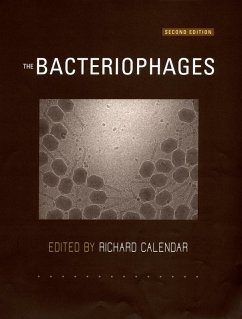This authoritative, timely, and comprehensively referenced compendium on the bacteriophages explores current views of how viruses infect bacteria. In combination with classical phage molecular genetics, new structural, genomic, and single-molecule technologies have rendered an explosion in our knowledge of phages. Bacteriophages, the most abundant and genetically diverse type of organism in the biosphere, were discovered at the beginning of the 20th century and enjoyed decades of used as anti-bacterial agents before being eclipsed by the antibiotic era. Since 1988, phages have come back into the spotlight as major factors in pathogenesis, bacterial evolution, and ecology. This book reveals their compelling elegence of function and their almost inconceivable diversity. Much of the founding work in molecular biology and structural biology was done on bacteriophages. These are widely used in molecular biology research and in biotechnology, as probes and markers, and in the popular method of assesing gene expression.
Dieser Download kann aus rechtlichen Gründen nur mit Rechnungsadresse in A, B, BG, CY, CZ, D, DK, EW, E, FIN, F, GR, HR, H, IRL, I, LT, L, LR, M, NL, PL, P, R, S, SLO, SK ausgeliefert werden.


